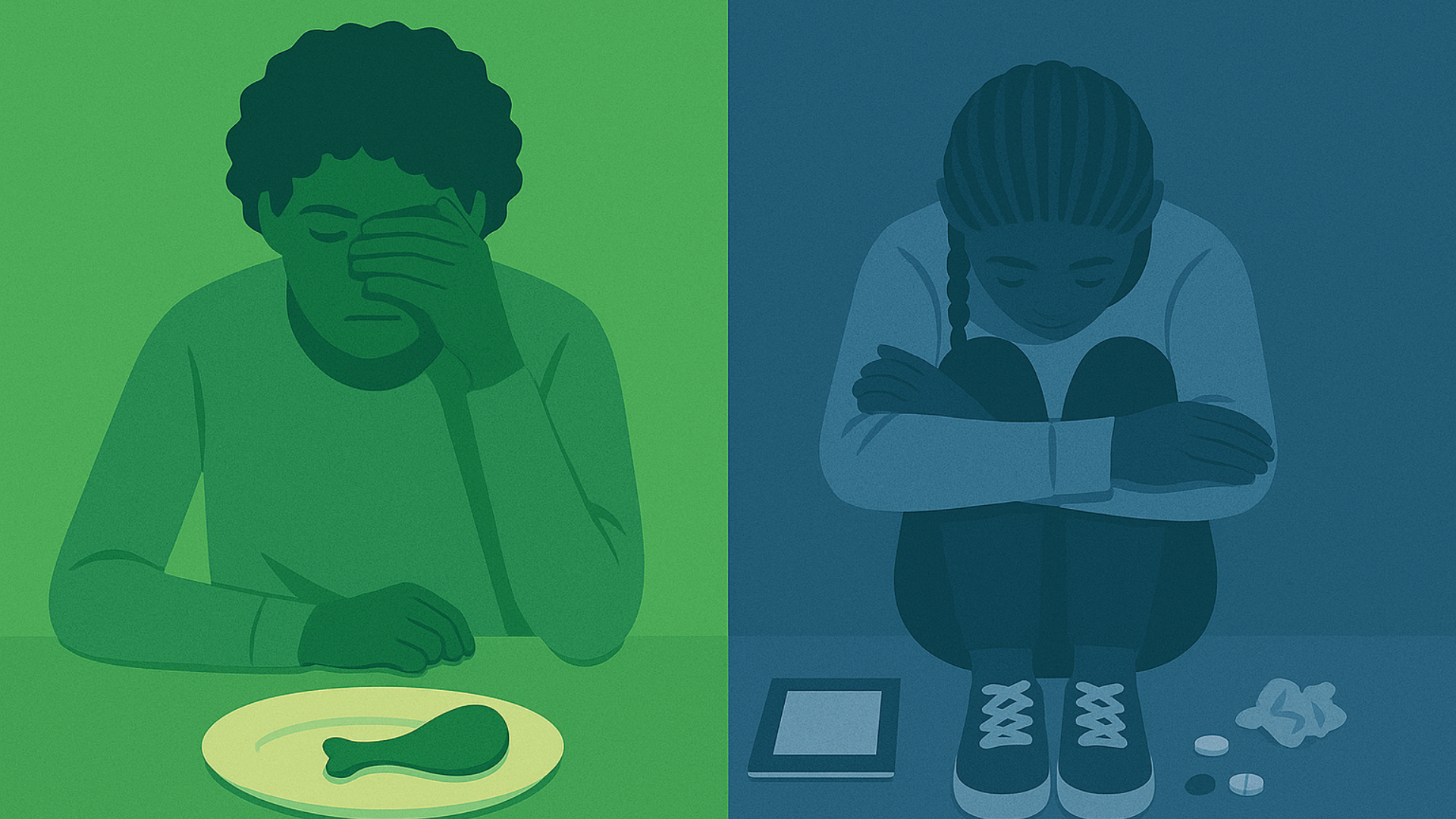10 Things To Do To THRIVE in 2022

At Thrive Wellness, our passion is in our name. Collectively, we strive to help individuals and their families thrive — not just survive. As we transition into a new year, we thought we’d round up some of our top tips and tricks to help you thrive in 2022.
1. Replace resolutions with purposeful intentions.
Start the new year inspired, not overwhelmed. While it’s great to have personal goals, putting too much pressure on yourself can actually interfere with your growth. Influenced by external expectations, resolutions are often unreasonable, rigid, and relentless, resulting in adverse effects that can impede momentum and harm one’s mental health. On the other hand, intentions are rooted in meaningful internal motivators. Intentions can gently guide an individual to cultivate change mindfully by allowing for self-compassion, reflection, and flexibility. If you’re looking to make lasting changes, set intentions instead of resolutions to set yourself up for success , and remember to practice celebrating progress over perfection along the way.
2. Let go of self-destructive behaviors and make space for healthier habits.
When embarking on your journey to self-betterment, it’s often helpful to first identify and eliminate any behaviors that simply do not serve you. By thoughtfully and honestly reflecting on thought patterns and actions that hinder your health and happiness, you can pull the weeds of self-destructive behaviors and plant seeds for healthier habits to grow in their place. Learn how to relinquish harmful habits and replace them with healthier alternatives.
3. Wave farewell to fad diets and say hello to intuitive eating.
In a world contaminated by diet culture, it’s no wonder that our relationships with food and our bodies are out of whack. Misinformation about what we should eat and how we should look litters the media, consumes our conversations, and shatters our self-regard. In the chaos of confusing and conflicting messages, we tend to forget that our bodies are built to instinctively inform us about what they need for nourishment and when. Even so, the signals our bodies send us are often muted by the misleading external messages amplified in our society. The good news is that it is possible to reclaim your relationship to your body and the food that you fuel it with. Take your power back and foster your well-being through intuitive eating .
4. Move your body in ways that you truly enjoy.
Results-based exercise is often unexciting and unsustainable for many. Working out to reach a certain number on the scale or to fit into a size that is unrealistic for your body type takes the fun and freedom out of the experience, which can ultimately discourage you from being active at all. Instead, try a variety of physical activities and focus on adopting those that make you feel good. In other words, rather than exercising for outcomes, embrace mindful movement to boost your mood and well-being . Your mind, body, and spirit will thank you for doing what feels right for you.
5. Enhance your life with mindfulness.
Mindfulness is more than just a trendy buzzword — it’s a state of being that can strengthen the mind-body connection and make a big difference in your daily life. Mindfulness practices can help you relieve stress, self-regulate your nervous system, and build resilience from within. Practicing mindfulness invites you to be fully present and in the moment, rather than ruminating in the past or worrying about the future. Whether it’s meditation, breathwork, or mindful movement, even the most simple strategies can significantly impact your overall health. What are you waiting for? Dive in and discover mindfulness practices that promote your well-being .
6. Take sleep hygiene seriously for a good night’s rest.
Restful sleep is essential to overall health, yet statistics show that many people suffer from insufficient and disrupted sleep. While diagnosed sleep disorders and issues that arise from other health conditions typically require the guidance of a professional, there are simple strategies that the average individual can implement to sleep more soundly. Sleep hygiene encompasses one’s bedroom environment, sleep-related routine, and habits. Improve your sleep hygiene to optimize your sleep experience and enhance your health.
7. Speak to yourself as you would speak to a loved one.
Most of us would not knowingly use our words to make our family members and friends feel poorly about themselves, cause them to question their worth, or excessively punish them for mistakes. So, then, why do we unrealistically strive to be perfect, unreasonably doubt and criticize our actions, and obsessively beat ourselves up? Be mindful of how you speak to yourself, nip negative self-talk in the bud, and try using positive affirmations to shift your perspective. Get started with these body-positive affirmations and self-confidence affirmations for victims of bullying (or anyone who could benefit from believing in themselves more, which is everyone).
8. Say yes to yourself.
It’s time to acknowledge and accept that self-care is not selfish. Setting reasonable boundaries in relationships, employment environments, and social settings is not selfish. Preserving your peace of mind, honoring your values, and prioritizing your well-being is — you guessed it — not selfish. While being a “people pleaser” can make both you and the recipient feel good, be careful not to neglect your own needs when saying yes to others. Unfair compromises can lead to resentment, burnout, and self-abandonment. Offer to help others when you can share your time and energy without sacrificing your own well-being. When you say yes to yourself , you can improve your relationships with yourself and others.
9. Learn as much as you can, as often as you can.
Awareness and education go a long way when it comes to wellness. Check out our “Thrivebrary” to peruse a collection of our health professionals’ favorite books for better well-being . Turning the pages of a good book can help you turn a new leaf in life. Additionally, develop a better understanding of health insurance for mental and behavioral health to get the most out of your coverage. Arm yourself with knowledge to advocate for the health care you need and deserve. The more you explore new information, insights, and inspirations, the more understanding you become of yourself, others, and the world around you.
10. Reach out for help when you need it.
No matter what you are going through, know that you are not alone. When family and friends aren’t equipped to sufficiently support you, seek professional guidance from educated experts who are trained to help. The stigmas surrounding mental and behavioral health are false and fading. There is no use in suffering alone and no shame in seeking help. You deserve to live your best life!
Thrive Wellness is a holistic healing community comprised of psychiatrists, therapists, primary care physicians, nutritionists, mindful movement specialists, and more — all dedicated to improving the health of our clients and communities. If you or a loved one would benefit from outpatient therapy , eating disorder treatment , or perinatal mental health programs , please reach out to learn more about our services.
The post 10 Things To Do To THRIVE in 2022 first appeared on Thrive Wellness.








